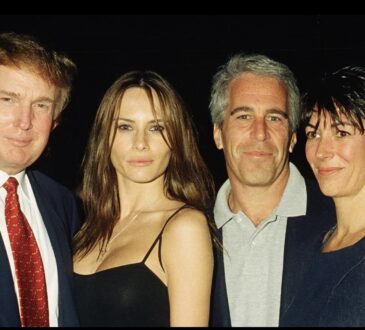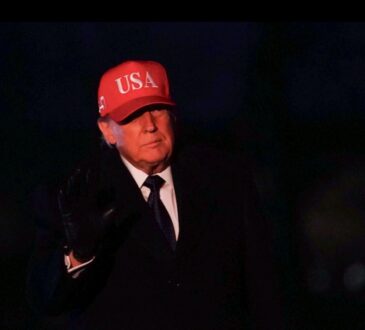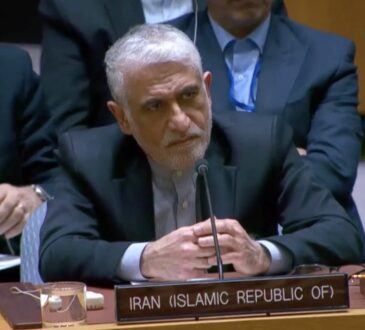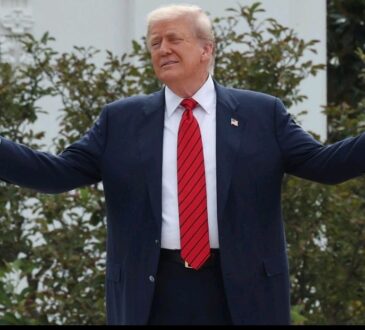
In a private recording that leaked to the press, Speaker of the House Mike Johnson was caught hesitating when asked if Donald Trump was mentally or physically unwell. Instead of giving a direct denial, Johnson sidestepped the question, leaving many to wonder if even Trump’s allies question his condition behind closed doors. This added to growing speculation about Trump’s health and whether those closest to him are quietly aware of issues they won’t admit publicly.
At the same time, Trump has been loudly celebrating his alliance with Russell Vought, one of the key figures behind the controversial Project 2025 plan. Trump went on social media to boast about how he and Vought are preparing to dismantle what they call “Democrat agencies” during the next government shutdown. His supporters see this as an attack on long-standing institutions of government, while critics fear it is part of a larger effort to consolidate power and strip away safeguards meant to limit presidential authority.
Meanwhile, divisions are also surfacing among Trump’s inner circle. In an interview, Commerce Secretary Howard Lutnick described Jeffrey Epstein not just as a criminal but as a deeply manipulative figure who knew how to control people at the highest levels of influence. His description went against recent claims made by Kash Patel, one of Trump’s loyalists, and even clashed with the FBI director’s framing of Epstein’s activities. This contradiction highlighted once again the murky nature of Epstein’s connections and how even within Trump’s camp, people cannot agree on the truth.
The situation became even more volatile when Trump announced a major executive order pledging that the United States would defend Qatar against foreign attacks. Trump underscored this alliance in a very public gesture, fist-bumping Qatar’s ruler, Emir Tamim bin Hamad al Thani. The order stated that America and Qatar have long worked side by side through military cooperation and shared interests. It declared that any attack on Qatar’s territory, government, or critical infrastructure would be considered an attack on the United States itself, committing American lives to protect Qatar’s sovereignty.
This move sent shockwaves through Trump’s own base, particularly his most hardline supporters who view themselves as fiercely pro-Israel. Many of them erupted in anger online, accusing Trump of abandoning Israel in favor of a country they see as hostile to American and Israeli interests. Laura Loomer, a far-right commentator, lashed out by accusing Qatar of flooding U.S. universities and institutions with money meant to push Islamist, communist, and anti-Israel agendas. She even tied Qatar to funding Iran, claiming that the same network once plotted to assassinate Trump himself.
Attorney Marina Medvin, who became well-known for defending January 6 rioters, called Qatar the single most effective foreign influencer in American politics. She argued that Trump’s order meant U.S. troops could now be sacrificed to defend a regime accused of funneling money to terrorist causes. Her comments reflected a wider fear among MAGA figures that Trump’s decision had effectively put American lives on the line for a country many of them deeply distrust.
On Fox News, conservative commentator Mark Levin added to the outrage. Levin, known for his strong pro-Israel stance, warned that this deal could actually lead to a clash between the United States and Israel. If Israel were to target Hamas leaders who operate openly out of Qatar, Levin questioned whether the U.S. would then be forced to side with Qatar against its own closest Middle Eastern ally. He demanded that any U.S. protection of Qatar should have been conditional, requiring Qatar to cut ties with Hamas, stop financing terrorism, and stop pouring money into radical groups on U.S. soil. Without those conditions, Levin argued, America had given away its protection for nothing.
Others on the far right echoed these warnings. Some reminded their followers that the U.S. has never extended such sweeping security guarantees to Israel, despite decades of close cooperation and billions in military aid. One commentator asked directly whether Americans were now supposed to die for Qatar, while Israel—long considered by many conservatives to be America’s most important ally in the region—had no such ironclad promise.
Trump’s move has created a deep fracture among his own supporters. Many of the same people who once defended his every decision are now openly furious, feeling that he is prioritizing the protection of a small Gulf monarchy accused of funding extremism and manipulating U.S. institutions, while leaving Israel exposed to threats. For a movement that has long framed itself around loyalty to both Trump and Israel, this executive order has forced many to confront an uncomfortable question: whether Trump’s personal alliances and deals matter more to him than the causes his base has always believed he stood for.




